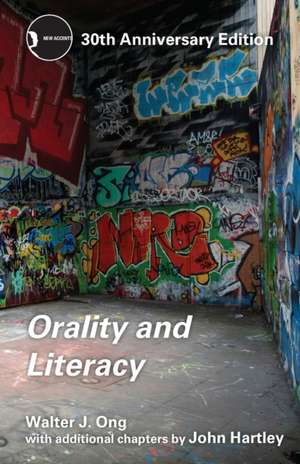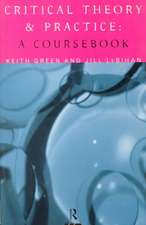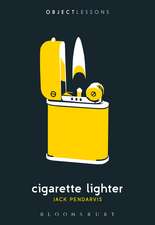Orality and Literacy: 30th Anniversary Edition
Autor Walter J. Ongen Limba Engleză Paperback – 27 sep 2012
This thirtieth anniversary edition – coinciding with Ong’s centenary year – reproduces his best-known and most influential book in full and brings it up to date with two new exploratory essays by cultural writer and critic John Hartley.
Hartley provides:
- A scene-setting chapter that situates Ong’s work within the historical and disciplinary context of post-war Americanism and the rise of communication and media studies;
- A closing chapter that follows up Ong’s work on orality and literacy in relation to evolving media forms, with a discussion of recent criticisms of Ong’s approach, and an assessment of his concept of the ‘evolution of consciousness’;
- Extensive references to recent scholarship on orality, literacy and the study of knowledge technologies, tracing changes in how we know what we know.
| Toate formatele și edițiile | Preț | Express |
|---|---|---|
| Paperback (1) | 294.91 lei 3-5 săpt. | +17.49 lei 7-13 zile |
| Taylor & Francis – 27 sep 2012 | 294.91 lei 3-5 săpt. | +17.49 lei 7-13 zile |
| Hardback (1) | 823.44 lei 6-8 săpt. | |
| Taylor & Francis – 27 sep 2012 | 823.44 lei 6-8 săpt. |
Preț: 294.91 lei
Nou
Puncte Express: 442
Preț estimativ în valută:
56.45€ • 58.71$ • 47.30£
56.45€ • 58.71$ • 47.30£
Carte disponibilă
Livrare economică 20 februarie-06 martie
Livrare express 06-12 februarie pentru 27.48 lei
Preluare comenzi: 021 569.72.76
Specificații
ISBN-13: 9780415538381
ISBN-10: 0415538386
Pagini: 264
Ilustrații: 1 b/w image and 1 halftone
Dimensiuni: 129 x 198 x 25 mm
Greutate: 0.32 kg
Ediția:Revizuită
Editura: Taylor & Francis
Colecția Routledge
Locul publicării:Oxford, United Kingdom
ISBN-10: 0415538386
Pagini: 264
Ilustrații: 1 b/w image and 1 halftone
Dimensiuni: 129 x 198 x 25 mm
Greutate: 0.32 kg
Ediția:Revizuită
Editura: Taylor & Francis
Colecția Routledge
Locul publicării:Oxford, United Kingdom
Public țintă
Postgraduate and UndergraduateCuprins
John Hartley: Before Ongism: "To become what we want to be, we have to decide what we were" Orality & Literacy: The Technologization Of The Word Introduction Part 1: The orality of language 1. The literate mind and the oral past 2. Did you say ‘oral literature’? Part 2: The modern discovery of primary oral cultures 1. Early awareness of oral tradition 2. The Homeric question 3. Milman Parry’s discovery 4. Consequent and related work Part 3: Some psychodynamics of orality 1. Sounded word as power and action 2. You know what you can recall: mnemonics and formulas 3. Further characteristics of orally based thought and expression 4. Additive rather than subordinative 5. Aggregative rather than analytic 6. Redundant or ‘copious’ 7. Conservative or traditionalist 8. Close to the human lifeworld 9. Agonistically toned 10. Empathetic and participatory rather than objectively distanced 11. Homeostatic 12. Situational rather than abstract 13. Oral memorization 14. Verbomotor lifestyle 15. The noetic role of heroic ‘heavy’ figures and of the bizarre 16. The interiority of sound 17. Orality, community and the sacral 18. Words are not signs Part 4: Writing restructures consciousness 1. The new world of autonomous discourse 2. Plato, writing and computers 3. Writing is a technology 4. What is ‘writing’ or ‘script’? 5. Many scripts but only one alphabet 6. The onset of literacy 7. From memory to written records 8. Some dynamics of textuality 9. Distance, precision, grapholects and magnavocabularies 10. Interactions: rhetoric and the places 11. Interactions: learned languages 12. Tenaciousness of orality Part 5: Print, space and closure 1. Hearing-dominance yields to sight-dominance 2. Space and meaning 3. Indexes 4. Books, contents and labels 5. Meaningful surface 6. Typographic space 7. More diffuse effects 8. Print and closure: intertextuality 9. Post-typography: electronics Part 6: Oral memory, the story line and characterization 1. The primacy of the story line 2. Narrative and oral cultures 3. Oral memory and the story line 4. Closure of plot: travelogue to detective story 5. The ‘round’ character, writing and print Part 7: Some theorems 1. Literary history 2. New Criticism and Formalism 3. Structuralism 4. Textualists and deconstructionists 5. Speech-act and reader-response theory 6. Social sciences, philosophy, biblical studies 7. Orality, writing and being human 8. ‘Media’ versus human communication 9. The inward turn: consciousness and the text John Hartley: After Ongism: The Evolution of Networked Intelligence
Notă biografică
Walter J. Ong (30 November 1912 – 12 August 2003) was University Professor Emeritus at Saint Louis University, USA, where he was previously Professor of English and Professor of Humanities in Psychiatry. His many publications have been highly influential for studies in the evolution of consciousness.
John Hartley is an educator, author, researcher and commentator on the history and cultural impact of television, journalism, popular media and creative industries. He is Professor of Cultural Science and Director of the Centre for Culture & Technology at Curtin University, Western Australia.
John Hartley is an educator, author, researcher and commentator on the history and cultural impact of television, journalism, popular media and creative industries. He is Professor of Cultural Science and Director of the Centre for Culture & Technology at Curtin University, Western Australia.
Descriere
This classic work explores the vast differences between oral and literate cultures and offers a brilliantly lucid account of the intellectual, literary and social effects of writing, print and electronic technology. The 3rd edition sees the addition of a short preface, further reading section, and essay-style afterword focusing on how orality and literacy has changed in relation to modern media, and how the idea of the ‘evolution of consciousness’ can be taken up anew in the light of recent work, from John Hartley.















